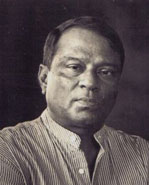“This was not intended to be a memoir. Memoirs are normally written by men of distinction. I make no such claim,” says Malinga H. Guneratne. Instead he describes his book ‘The Suicide Club’ as the tale of what went on at the highest levels of the British Plantation Raj. The book is made up of a series of stories set in the Plantation Raj during the colonial and post-colonial era. “I was a ringside participant in this great human drama,” says the author.
Subtitled ‘A Virgin Tea Planter’s Journey,’ the book begins with the plantations under Colonial rule. Herman then goes on to describe the process of nationalization in the 1970s, culminating in the story of how he developed his own tea estate and unique brand.
 |
| Malinga H. Guneratne |
Published by Sri Serendipity Publishing House last year, ‘The Suicide Club’ is Herman’s fourth book. His other three – ‘For a Sovereign State’, ‘The Plantation Raj’ and ‘The Tortured Island’ – are all works of non-fiction set here and revolve around political themes such as the movement for secession, the nationalisation of the plantations and conflicts between class, caste and religion in modern Sri Lanka.
Describing ‘The Suicide Club’ as a series of colourfully and humorously portrayed vignettes taken from Herman’s life on different tea plantations around Sri Lanka, the panel of judges said the text “effectively straddles the boundary between memoir and anecdotal history.”
The judges went on to identify the author’s strength as his “ability to breathe life into the characters that he describes, whether they are key players in the country’s political arena, representatives of the British Raj or relatively unknown tea planters and plantation workers, evoking vivid images of the personalities and situations described.”
Though Herman had previously written about the Plantation Raj, in ‘The Suicide Club’ he chose to examine it again from a more personal standpoint. “The stories of the British plantations were always written by Britishers. I always wanted to give this period a Sri Lankan perspective and flavour,” he says revealing that he wrote it in fits and starts, relying for most part on memory and a few scattered letters. “I enjoyed my life on the plantations. What you enjoy, you remember,” he says.
Excerpt from ‘The Suicide Club’:
Let me try to recall one such dinner party. The Nicholsons would send us a printed note, stating that Sir John Arbuthnot, M. P. and Chairman of the Estates and Agency Company, would like to have the pleasure of inviting Mr. and Mrs. Austin for dinner. This sent the plantation wives into a tailspin. They started preparing for the dinner party one or two days before the event. New sarees were bought, hairstyles perked up, face lotions applied, and rehearsals carried out with matching lipsticks. Sarees, shoes, jackets and shawls to match were bought from Butani’s in Nuwara Eliya.
When the day arrived the ladies looked so elegant and beautiful that Sir John would gaze at them in sheer admiration. The ladies were fully aware of their attraction and turned on the charm for the British peer. The husbands would have to live on bread and water for the next few months!
Sir John would set the tone for the evening. A special brand of Scottish malt whisky from the Isle of Skye was his preferred choice. He would put on a special display for the ladies. Nicholson would gently warn us to go easy on the drinks. He himself was very abstemious and had only a few whiskies. Despite Nicholson’s warning, we got in some extra shots of Chivas Regal just to get us into the right mood. The tables were laden with Lobster Thermidor, specially ordered from the East Coast, and other choice meats. Prawn cocktail was the starter. Margaret Nicholson would also produce the most delightful desserts.
The discussions would centre on the politics of Ceylon and the plantations in general.
On this particular day at the dinner table, he suddenly asked us assistants whether we would like to read the ‘Daily Telegraph’. I was later to learn that this was a Conservative newspaper. When the question was asked of me I replied quite frankly that I had hardly any time to read the ‘Daily News’. There was a deathly hush, during which Nicholson looked at me as if I had brought mud into the sitting room! Not willing to read the Daily Telegraph, the Conservative newspaper, was an act of sacrilege! He then went on to tell us that when he met the leader of the UNP he had asked him for a campaign contribution. ‘Do you think we should support him?’ he asked.
Having made one faux pas I replied that it would be advantageous to the plantation interests to have the UNP in power.
He persisted, ‘Do you think that I should make a contribution?’
I replied that I would consider it imprudent for a foreign company to engage in supporting one party or the other in Ceylon.
‘I agree with you. If a foreign company supported the Labour party in the UK we would be very cross with them.’ Was he testing us? I was past caring with quite a few whiskies under my belt. |


